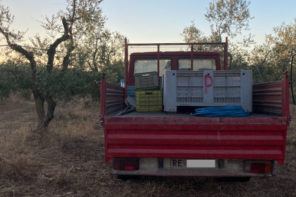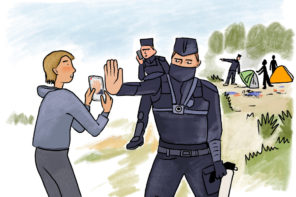What are the intended/unintended consequences of anti-smuggling and anti-trafficking policies?
Let’s consider two continents. At the beginning of 2015, Europe prided itself on the freedom of movement that citizens of the Schengen Area enjoyed. By year’s end, terrorist attacks and asylum seekers had fractured the borderless treaty into chaos. Like toppling dominoes one after another, European nations – most profoundly, the (not so) United Kingdom – have reasserted their sovereignty, declaring a loss of confidence in the European Union’s political integrity. As the Schengen Area has shaken, a cascading series of political, economic, and cultural impacts have been felt throughout the region and the world.
Ten years ago, Europeans scoffed at American border controls, mocking the Department of Homeland Security as ineffective at best and draconian at worst. Yet, Europe’s emerging security regime – symbolised by Brexit – preceded and presaged the horrific deportation policies of the Trump sdministration, which combine relentless surveillance with nationalist xenophobia. Combined, this venomous approach, typified by ‘First Daughter’ Ivanka Trump’s conflation of smuggling with trafficking, will have a deep and enduring impact in the western hemisphere that will, tragically, reverberate throughout the Global South.
Are border fortifications/restrictions a useful or counterproductive response to mass movements of people?
As Europe’s border controls have tightened, and with little hope for peace in Syria, Iraq, or Afghanistan, migration into Europe from Africa and the Middle East has decreased but still continues. As has happened previously in European history, these new borderlands have once again become places of cultural duality: regions of linguistic, ethnic, and religious fusion marked by fences, barbed wire, and signs warning the wrong people to keep out.
Hardening any international border invariably generates consequences that extend beyond the two countries establishing checkpoints or building walls. This will almost certainly happen during the Brexit negotiations, as the Ireland-United Kingdom land border becomes a flashpoint, potentially leading to renewed conflict or even open war between the regions.
In the western hemisphere, instead of satiating the demands of anti-immigrant partisans, two decades of border militarisation in the United States has only fueled calls for more borders. Dating back to the nineteenth-century Chinese Exclusion Act, restrictions have proved a failed approach to provincialism and can be added alongside slavery as blights on the American consciousness. Once a beacon of hope, the Statue of Liberty weeps for what the United States has become. The ugly transformation of borders, whether in Europe or North America, has hardened economic, cultural, and geopolitical landscapes, and will fuel uncertainty, recession, and discord for a generation to come.









